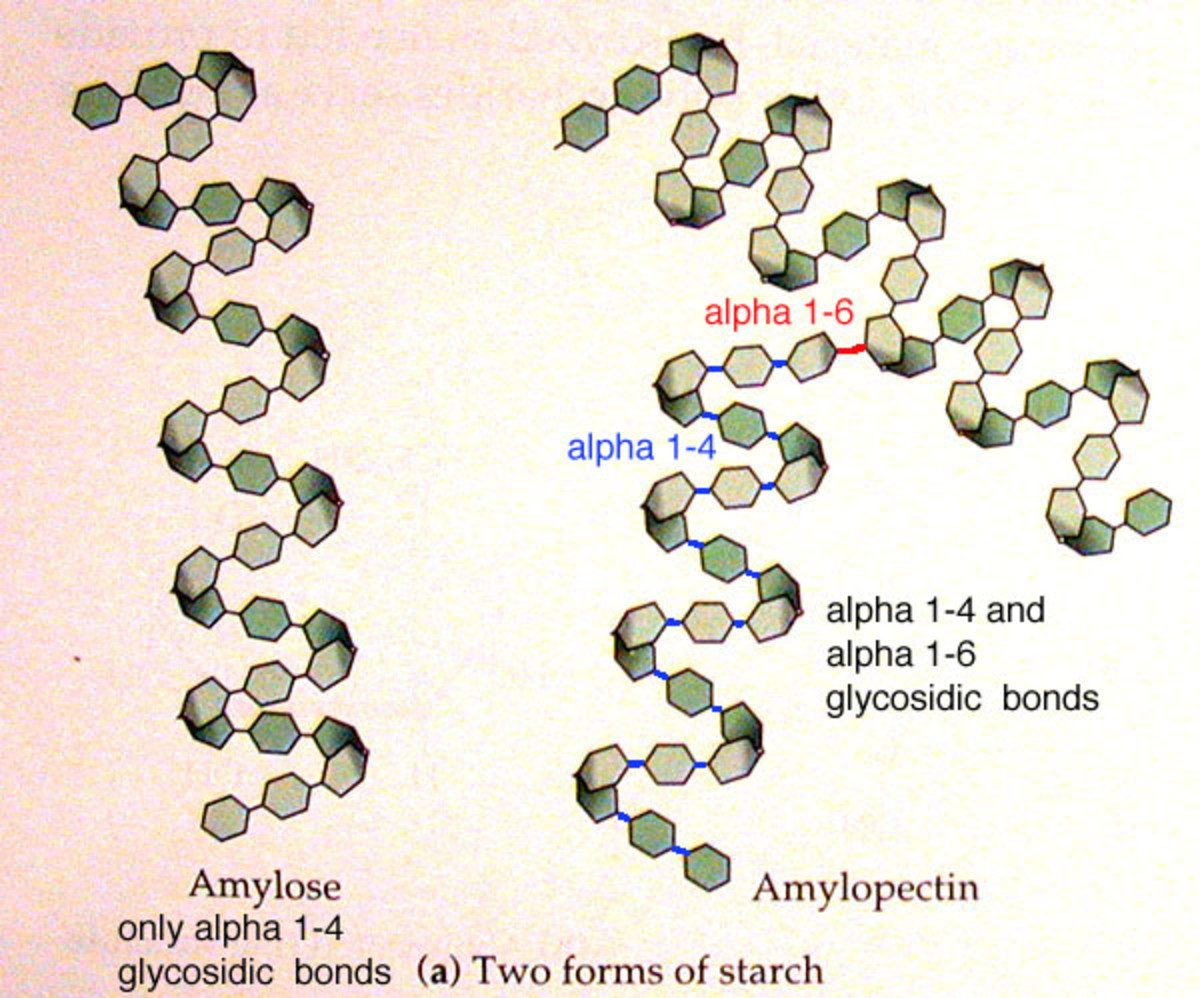Fructose and Accelerated Aging

Is Your Diet Making You Old?
Recent research has implicated excessive fructose in obesity, insulin resistance, elevated triglycerides and LDL cholesterol, and metabolic syndrome. If this isn't enough for you to cut way back on fructose intake, then here is another reason. Fructose may actually be causing your body to age faster through a process known as glycation.
Fructose is a monosaccharide or basic carbohydrate. The other two common consumed monosaccharides are glucose and galactose. Glucose is the most common monosaccharide, fructose the second most common, and galactose the least common. Two basic carbohydrates can be linked together through an additional oxygen atom to form disaccharides. The most common disaccharides are maltose (glucose-glucose), sucrose (fructose-glucose), and lactose (galactose-glucose). The enzymes maltase, sucrase, lactase break down these corresponding disaccharides in the small intestine for absorbtion. There are also other carbohydrates composed of multiple monosaccharides and these are called polysaccharides. Monosaccharides are also known as simple carbohydrates, while disaccharides and polysaccharides are known as complex carbohydrates.
Fructose is found in fruit, but fruit is not your main source of fructose. Your main sources of fructose is High Fructose Corn Syrup (HFCS), sugar (which is broken down into half fructose and half glucose), and concentrated fruit juice. If you start checking labels you will also discover it in all sorts of things like syrup, ketchup, fruit pies and more. Some fructose is okay, especially in fruits and vegetables. Fruits and vegetables are filling and also release the fructose slowly due to their fiber content. You want to limit your fructose intake to about 50 grams or less than 10% of your calories. Fructose has just under four calories per gram.
When you consume carbohydrates, the complex ones are broken down by your digestive system till they are all monosaccharides (mainly glucose and fructose, we are going to ignore galactose from now on). These monosaccharides are then absorbed through your small intestine for your body to be used as fuel. The trouble is that they are not all metabolized the same way. Glucose is the main fuel for your cells and all of your cells can absorb glucose. Your cells will convert excess glucose into glycogen for later use. Fructose however, has to be converted to glycogen by the liver first, then into glucose for your body to use it. When your liver is maxed out with glycogen, then it starts converting the extra glycogen into fat through a process known as lipogenesis. If you consume to much glucose, your whole body can absorb some of it, unlike fructose that can only be used by your liver. Your liver can hold about 10% of its weight in glycogen and your muscles about 1% of their weight in glycogen. The liver weighs less than two kilograms, so that is about 200 grams of glycogen, while if your muscles weigh around 40 kilograms (I realize this varies greatly from person to person), then they can store 400 grams of glycogen. This means that your ability to absorb excessive glucose before it turns to fat is much greater than your ability to absorb excessive fructose.
But my main point in this article is not about how fructose leads to obesity and metabolic syndrome. That is covered in other articles. At least those problems can be reversed later by eliminating excess fructose. Fructose has a much more sinister and harmful long term effect on your body called glycation.
Glycation is when a sugar molecule binds itself to a protein molecule or a lipid molecule. The resulting molecules are called Advance Glycation Endproducts or AGEs for short. These AGEs are basically gunk that fill up your cells and cause all sorts of problems. They are implicated in diabetes, macular degeneration, cataracts, and both weakening and stiffening of collagen in the body. Healthy collagen helps you to look young and keeps your blood vessels supple. When your collagen hardens and weakens, then you start to look older and your blood pressure starts to go up.
Your body is able to very slowly get rid of AGEs, but probably never as fast as they are formed. Cells excrete AGEs into the blood serum which are then eliminated by the kidneys. The kidneys can often be overloaded by all these AGEs. This overload can form a positive feedback loop until the kidneys fail. This is a common problem with diabetics who often have excessive AGEs due to excessive glucose in their blood. It is not uncommon for diabetics to suffer renal failure and require a kidney transplant due to excessive AGEs.
So now back to fructose and aging. Not all of the fructose absorbed into the bloodstream goes directly to the liver. Much of it spreads throughout the body. Fructose accelerates the glycation process (sometimes called fructation when it involves fructose instead of glucose) when it enters your cells. The amount of acceleration is hard to calculate due to a lot of variables, but we can see the effects on rats. Glycated hemoglobin levels were 26% higher in rats that drank fructose water as opposed to those that drank glucose or sucrose water. Lipid peroxidation and collagen crosslink testing also verified that the rats drinking fructose water suffered higher levels of aging damage.
Basically in summary, the rats fed extra fructose aged faster. They not only aged faster than the control group given plain water, but they also aged faster than the group given glucose or sucrose (which turns into 50% fructose). So if obesity, high triglycerides, high LDL cholesterol, insulin resistance, and sometimes high blood pressure aren't enough to get you to cut back on your fructose consumption, then hopefully accelerated aging might give you that little extra push to live healthier.
For more about fructose, check out Dieting and Chubby Calories









